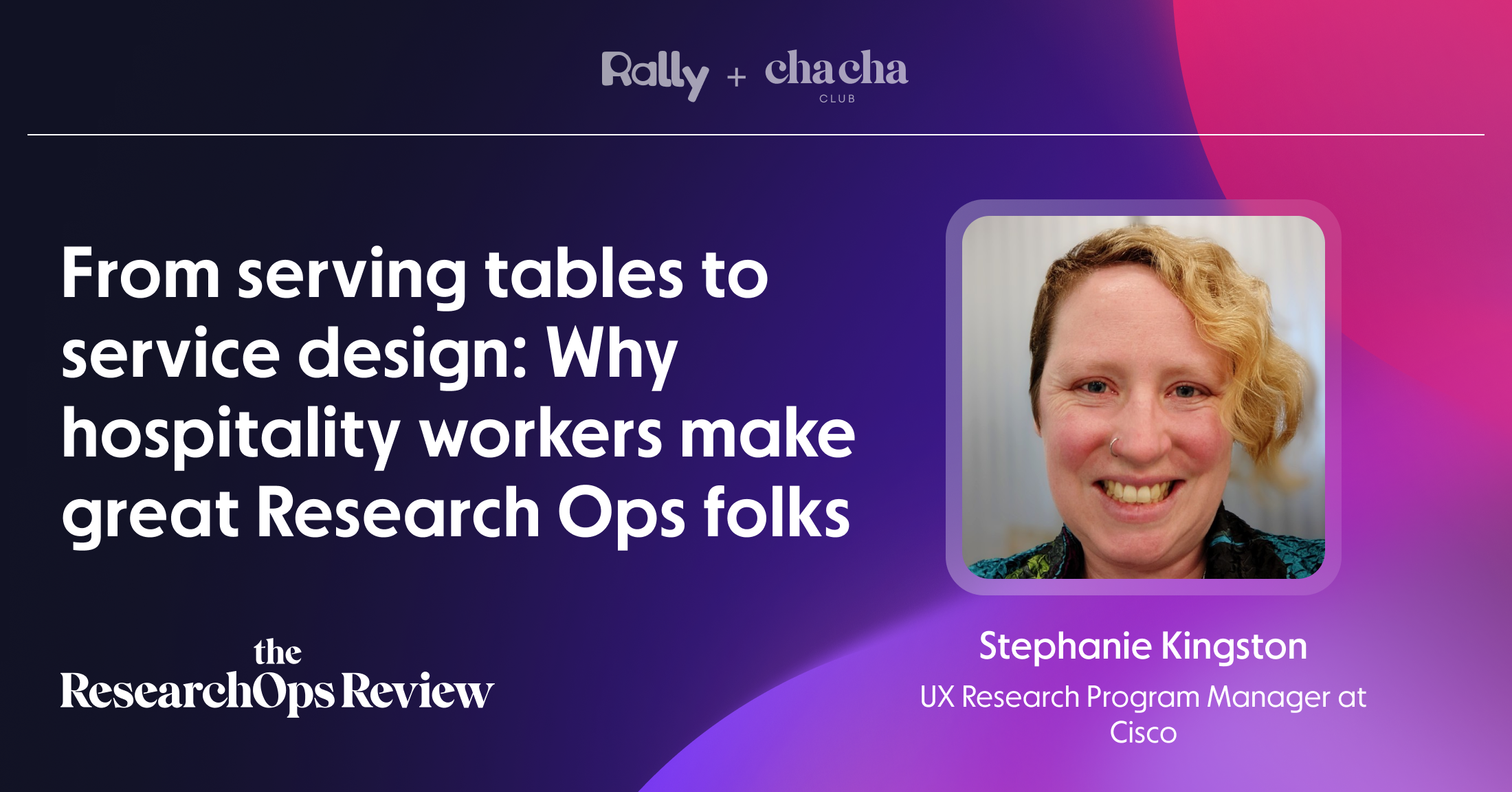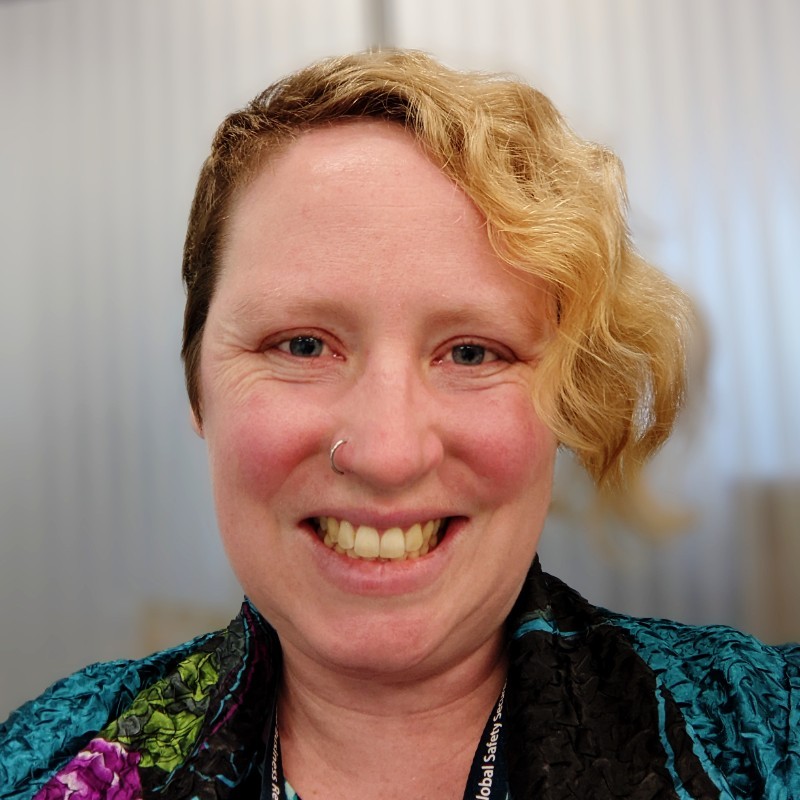From serving tables to service design: Why hospitality workers make great Research Ops folks
If your most recent workday involved managing bookings, getting customers what they need, organizing tasks with your coworkers, creative problem solving, and maybe cleaning up a few messes…then you probably work in a restaurant, a front desk, a storefront…or in Research Operations.
Before I moved to research operations, I spent fifteen years working in the food service industry — from fast food to fine dining! (That’s me taking the below photo.) I didn’t own clothing that wasn’t coffee-stained, and I learned how to love food that had gone cold because it was the only food I’d get to eat that day. I also worked with incredible, passionate people who could run circles around most corporate project managers (see Figure 1).

If, like me, you’d like to make a change from a career in hospitality, whether in a restaurant, hotel, hostel, kitchen, retail store, or at a front desk, while still doing what you love, this article is for you. I’ll explain how the things you love about working in hospitality can translate to a meaningful career in Research Ops. And if you’re a Research Ops professional who’s hiring, I’ll prove that the hospitality industry is full of talented folks with the ideal attitudes and skill sets to thrive in your team.
Three core areas
So, where do you even start when the thought crosses your mind, “Wow, I’d love a job where I can go to the bathroom whenever I want?” It turns out that people who can get stuff done are always in demand. But the gulf in industries — the big, yawning chasm of not having “office” experience — can seem vast and unforgiving. When you’ve spent most of your career in a hospitality role, it can feel like you’ll never find work doing anything else.
Here’s the best career advice I ever received (and sometimes the most depressing): three things can help you change your job or career, and you need at least two of them to do it: skills, knowledge, and luck. So you either need to be skilled and lucky, knowledgeable and skilled, or lucky and knowledgeable. On bad days, I refer to them as the “Unholy Trinity,” but today is a good day, so I’m going to call them “Core Areas.”
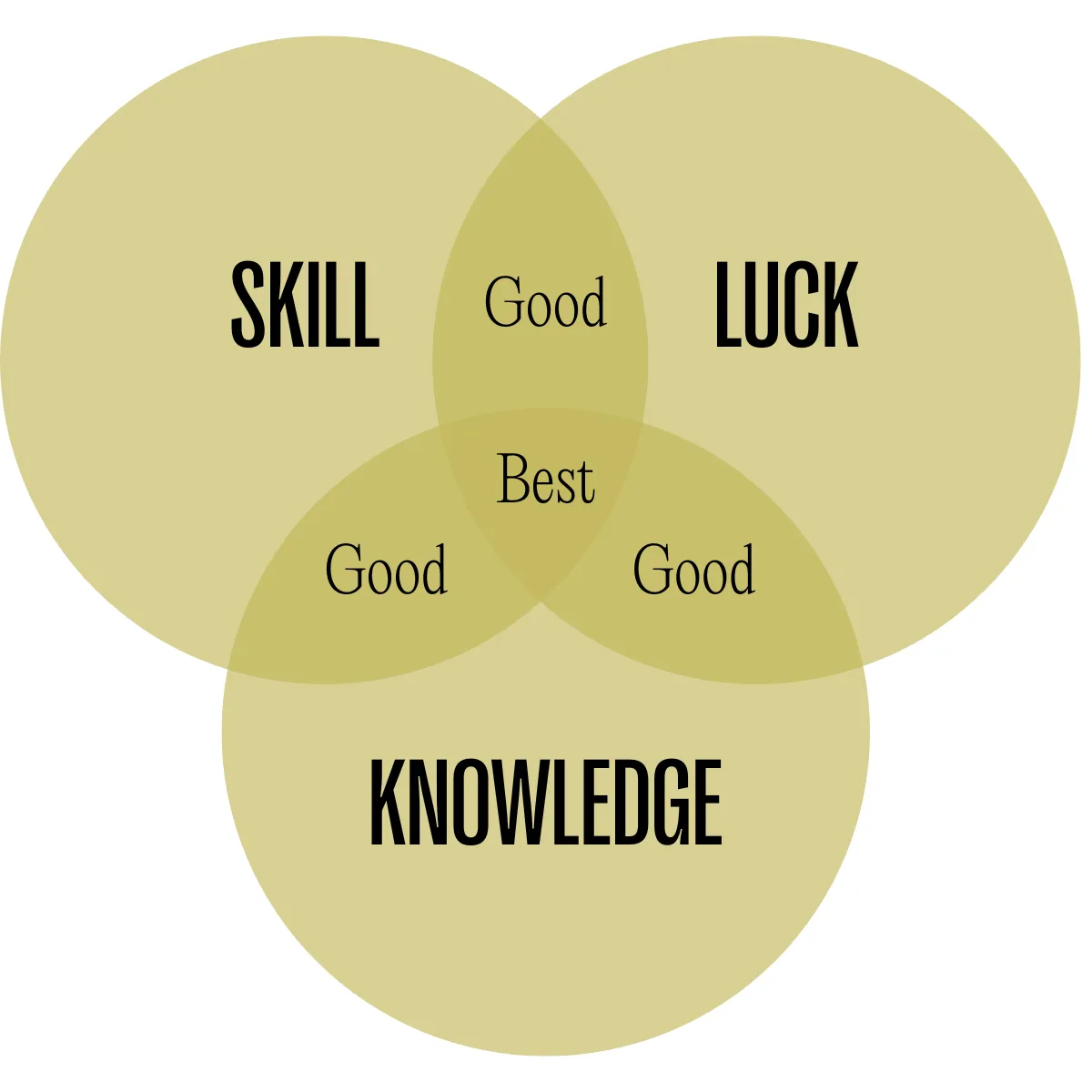
Skills
Let’s start with skills because, know it or not, you already have them! If you’ve ever handled reservations, inventory, schedules, service times, side duties, cash tills, tip pools, and many, many more daily hospitality duties, then congratulations, you already have plenty of research operations skills! You can apply those skills to common Research Ops processes: learn how to make and manage meetings, explore the free version or YouTube tutorials of common tools, and sign up as a participant to User Research websites to see the process.
Think about the things you like to do best at work. Does the sight of a well-timed reservation flow fill your heart with satisfaction? You should look into participant recruitment. Are you the person who reorganizes the entire store room? You might be interested in research knowledge management. Are you the person who always gets paired up with trainees because you know how everything works? You would probably enjoy program management. And plenty of other skills carry over with no translation needed, such as time management, communication skills, flexibility, and more (see Figure 3).
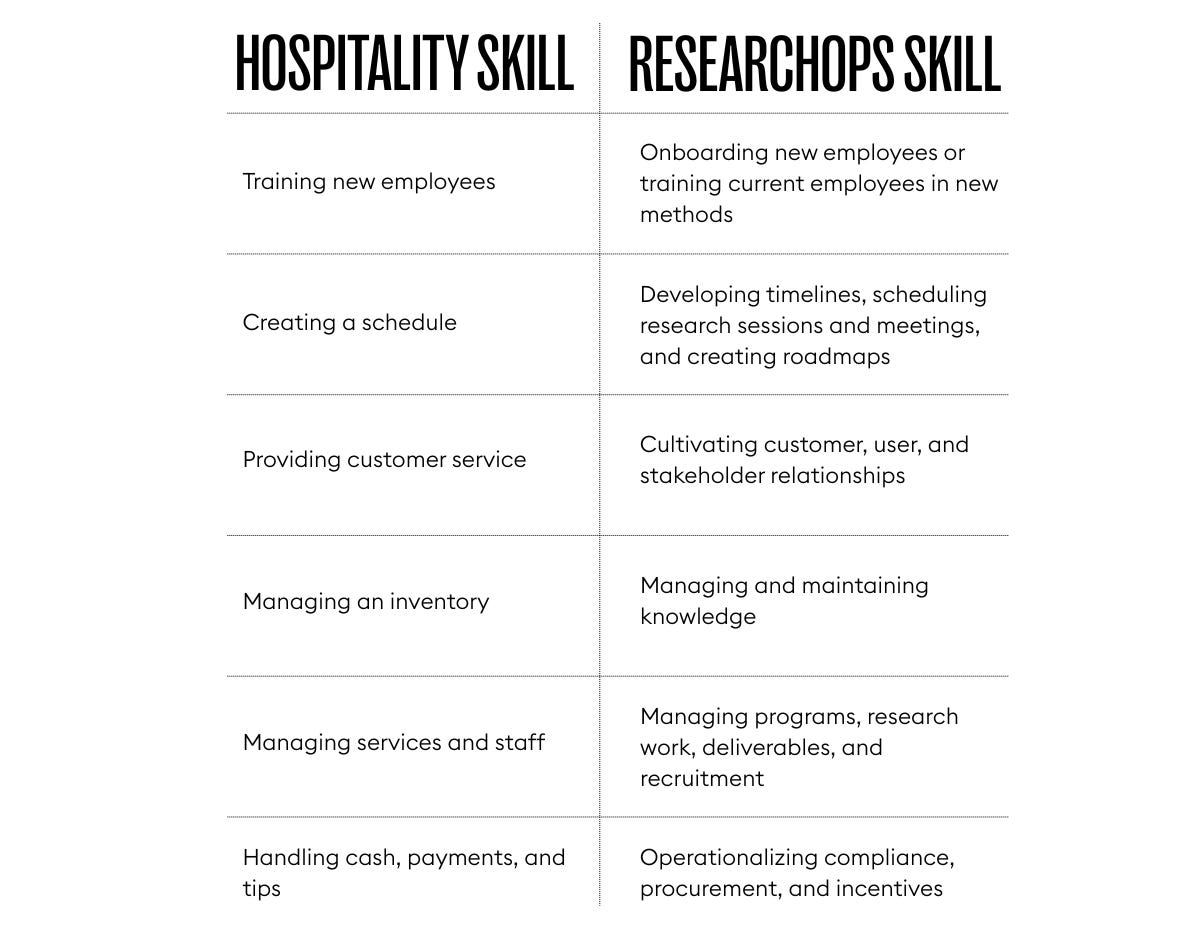
Consider the things you enjoy doing in your current role and how you might apply those same skills in Research Operations. You can do this at any stage in your career, as Emily Wever shared in her ResearchOps Review article “I Knew I Was Done When They Gave Me a Cash Drawer: My Mid-Life Pivot to Research Ops.”
Knowledge
There are two main areas of knowledge you should be familiar with if you’re trying to break into the Research Operations industry.
The first area of knowledge you’ll need to study is UX Research, for which, luckily, there is a myriad of free and affordable information available to watch, listen to, and read. Take online courses, watch videos, and read books. Absorb all the information and test it out or put it into practice wherever possible. I suggest starting with all the other articles in The ResearchOps Review, then move on to the recommendations at the end of this article.
The second knowledge area I recommend getting familiar with is service design. Service design has always been part of Research Operations, but it’s fast becoming a core component of these roles. If you get a good grasp of service design, you’ll even have a leg up on many current Research Operations professionals — and have the option to explore other careers that use service design, too.
To dig a little deeper, service design is the practice of considering all the parts that make up the whole of a service, how the parts interact, and how they come together to provide the customer (or researcher) with what they need, while also serving the business’s interests. This can sound a bit daunting, but if you work in hospitality, you’re probably already doing it. Here are some real examples from my life in hospitality that turned out to be service design all along:
- Figuring out the most efficient way to polish coffee cups so we didn’t run out during service — and the staff got to go home on time (see Figure 4).
- Assigning people to take charge of certain tasks throughout a brunch service so that everything gets done and nothing gets neglected.
- Standardizing how frequently we ran a contest so customers didn’t miss their chance to enter.
- Implementing standard procedures to mitigate allergies, so all diners could enjoy their meals (without ending up in hospital or curled up in a ball).
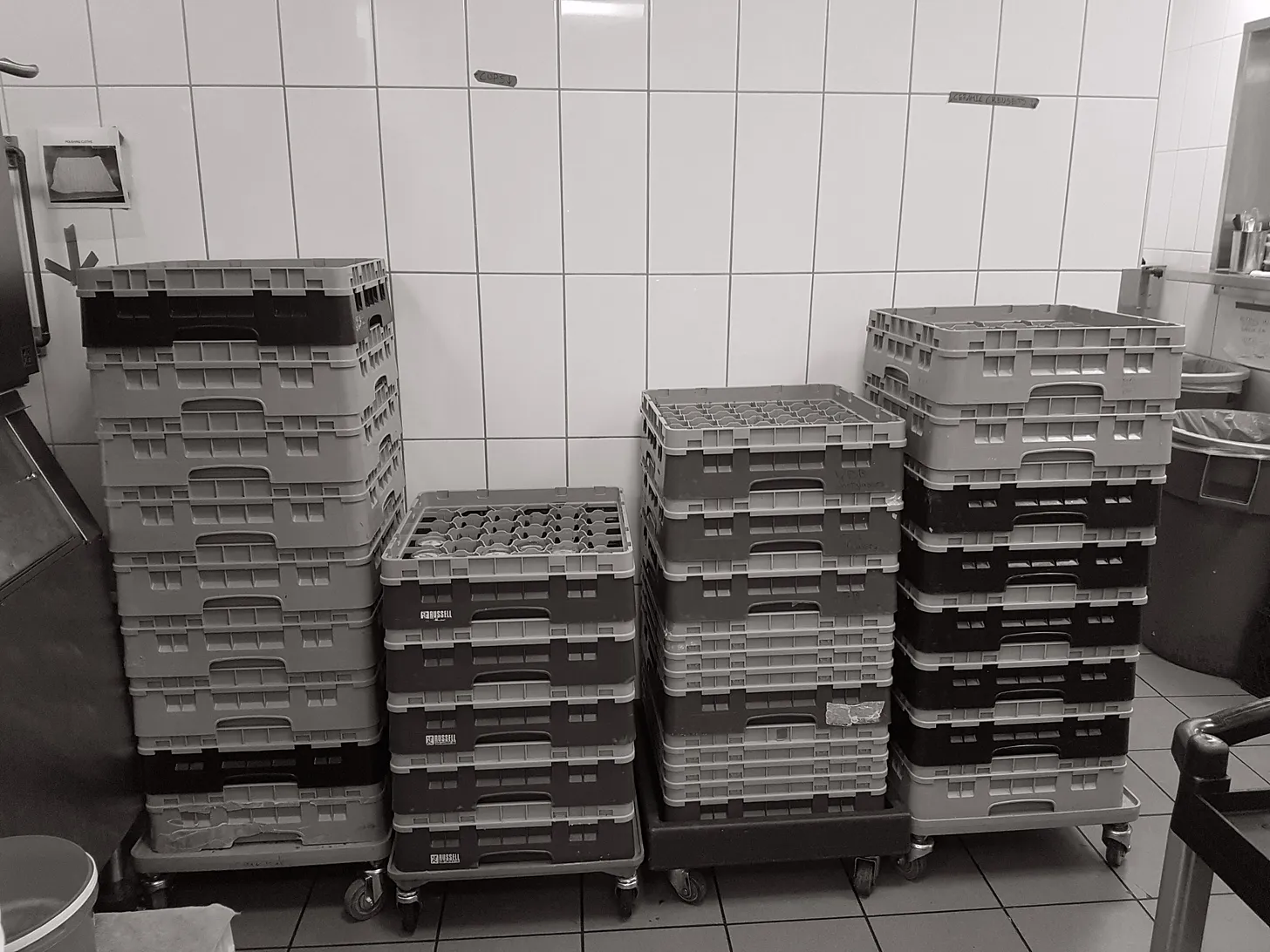
If you’ve ever looked at the way something was done and thought, “Hmmm, I bet we could make this easier, more efficient, or do it faster,” then you’re thinking with a service design mindset. Hospitality jobs often foster quick, iterative thinking that makes us great ideas people. Hold on to that way of thinking and use service design to turn those ideas into a structured reality — you’re doing the same thing, just in the field of User Research.
Luck
Luck is ephemeral, unquantifiable and unpredictable. In my case, luck looked like this: I happened to chat with a research manager who was scoping out a Research Ops role and knew that my receptionist experience would carry over. I was in the right place at the right time, and I think about that every day.
Luck includes finding yourself in front of the right person at the right time; But you won’t hit gold every time. You can find some incredible mentors and cheerleaders out there who will never be in a position to hire you. Or you can apply for a job at a company over and over, but never have your resume hit the desk of somebody who understands hospitality work. That’s the brutal truth.
Chasing luck can lead to a constant feeling of missing out or of not doing enough. It leads to the voice in your head saying, “What if I don’t apply to five jobs a day and I miss out on the one that would have hired me?!”
The good news is that you can make your own luck to a certain degree — or at least improve your odds. The bad news is that making your own luck takes a lot of energy, effort, and vulnerability. So take this next section with a heavy side serving of self-care, because it’s very easy to burn yourself out chasing what could be around the next corner.
The less brutal truth is that to increase your chances of finding yourself in front of the right person — increasing your luck — you need to meet as many people as you can. Networking is incredibly cliché, but it can also be the best way to do this. Start with people you know; the more somebody knows you, the lower the risk it is for them to take a chance on you.
And networking doesn’t have to be limited to Research Ops people; use the UX knowledge you’ve picked up and start talking to designers, researchers, product managers, engineers — anybody who will give you their time. Every conversation is a learning opportunity. Augment that by talking to people who work in corporate or office environments; these environments are massively different from hospitality work and require a kind of relearning of their own. Use LinkedIn, participate in online communities like this Substack and ADPList, and check out local meetup groups.
Putting yourself out there can be grueling work, but it’s the best way to increase your odds of finding the person who will hire you. I don’t want to sugarcoat the realities of the Research Operations job market: it’s tough, but there are more roles every year. Research Ops is a small but growing field. As you work on this transition, be gentle on yourself. It’s challenging, but worth it.
You’ve got this
Research Operations is a field that takes some of the best parts of hospitality — the pride of a well-executed service or making life more manageable for the people around you — and pairs it with the exquisite joy of being able to sit down or stand up whenever you want. Do I still sometimes eat lunch that’s been sitting out for hours and gone cold? Yes. But it’s because I got distracted working on something I love. Am I still joyfully baffled when I can just walk away from work at the end of the day? Yup! And I hope you get to feel that way, too.
Recommended resources
- Research That Scales: The Research Operations Handbook (Rosenfeld, 2024) by Kate Towsey
- Just Enough Research (Mule Books, 2024) by Erika Hall
- Good Services (BIS Publishers, 2020) by Lou Downe
- Google UX Design Certificate
- The ResearchOps Review (This publication!)
Edited by Kate Towsey and Katel LeDu.
👉 The ResearchOps Review is the publication arm of the Cha Cha Club – a members' club for Research Ops professionals. Subscribe for smart thinking and sharp writing, all laser-focused on Research Ops.
Rally’s Research Ops Platform enables you to do better research in less time. Find out how you can use Rally to empower your teams to talk to their users, without disjointed tooling and spreadsheets. Explore Rally now by setting up a demo.
